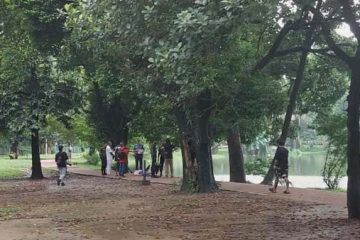Five existing mobile phone companies of the country on Monday submitted applications for participating in the auction for three licences for 3G services, scheduled for September 8, after the government had met almost all of their demands bowing down to pressure.
No foreign company, however, submitted the application for 3G auction for one licence reserved for foreign operators because of alleged syndication by the existing operators to do away with the competition factor.
Grameenphone, Banglalink, Robi, Airtel and Citycell submitted the 3G auction applications in the final hour on Monday, the last date for submission, tagging a few
more conditions including settlement of the SIM replacement tax issue before 26 August which is the last date for submitting bid earnest money of $20 million.
The chief executive officers of the mobile phone companies met the BTRC chairman Sunil Kanti Bose at his office for submitting the applications, said operator sources.
Officials of operators, however, claimed that their participation in the auction was still not confirmed as some of their demands were not yet met.
Banglalink CEO, Ziad Shatara, in a statement said, ‘We are very thankful to all the government officials for their continuous and concerted efforts during the entire process on resolving all the issues and hope that all issues will be resolved ahead of 26th August and pave the way for Banglalink to submit the earnest money and confirm participation in the auction.’
The National Board of Revenue claimed SIM replacement tax worth Tk 3,100 crore from the mobile operators as the operators were dodging the tax unlawfully.
In early 2012, the NBR claimed a total of Tk 1,580 crore from GP, Tk 774 crore from Banglalink, Tk 664 crore from Robi and Tk 82 crore from Airtel saying that the operators did not pay the amounts as SIM replacement tax.
The issue was pending before the High Court which was recently sent back to the tax office to solve it through alternative dispute resolution.
Going softly, the NBR recently decided to conduct a joint audit of the mobile phone companies to verify the relevant documents although its own investigation report mentioned the wrongdoings by the mobile companies.
The mobile phone companies on several occasions warned the government that they would not participate in the 3G auction if their demands are not met.
The National Board of Revenue on Sunday slashed the VAT on 3G license for the second time to 5 per cent from 7.5 per cent following government order because it was one of the major preconditions by the operators for submitting the application.
The revenue board on August 6 exempted the mobile phone operators from paying 15 per cent VAT on their revenue from 3G services to be shared with the BTRC.
The NBR, meanwhile, sent another proposal on Sunday to the finance ministry for exempting the mobile phone operators from giving 15 per cent value-added tax on their revenue sharing with the BTRC from the existing 2G services.
The government, which ends its tenure in October, initially aimed at getting at least $800 million from awarding 3G licences to three local mobile operators and an international company.
BTRC officials alleged the existing mobile phone companies made government bound to change the 3G guideline to discourage the participation of the international operators.
They said that the government, which was desperate to hold the bidding before the end of its tenure, was meeting the demands of operators one after another causing state revenue losses of millions of dollars.
The BTRC will award three licences to three out of five mobile companies operating in the country and one to any foreign firm.
Earlier on July 27, lone state-owned mobile operator Teletalk submitted its application for 3G spectrum. According to the guideline Teletalk will got 3G licence by default as state owned operator.
Although Teletalk does not have the 3G licence yet, it has been running 3G services on a trial basis since October 14, 2012.
A total of 40 MHz of spectrum will be auctioned for eight blocks where a single bidder can bid for maximum two blocks.
The minimum allocation for a spectrum block is 5 MHz with base price of $20 million for each MHz.
-With New Age input




















